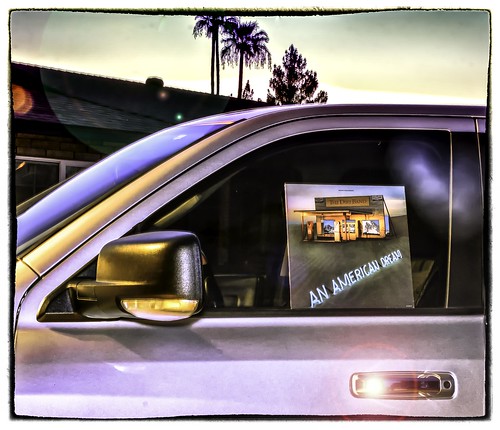As we move in to the last week before the winter break I'd like to thank you for all the hard work and effort that you have contributed towards making this another good semester for student learning, engagement and empowerment this semester. We have continued to investigate how we can redefine the school experience for our students. We started with a new 4/5 class room area which has certainly increased the possibility for collaboration and connectivity between students and teachers and provided a first insight into the new learning environments that will dominate the refurbished primary and new secondary campus in the not so distant future . Our year long inquiry into 'who we are' links perfectly with our second step on the road to becoming a Positive Education school, and is raising some interesting questions for us to solve. Gaining a deeper understanding of the 10 positive emotions has helped us look more deeply into ourselves as we search for self awareness of who we are as educators at ISHCMC. Of course there has been so much more that just these few examples but I selected these because of their focus on the individual and their contribution to the whole. I believe this is a key constituent that under pins a redefinition of education. We have to be looking at breaking the industrialized conveyor belt model of education and making it about individuals and what is best for their social, emotional and intellectual being. This includes all our stakeholders.
The readings in this week's Food for Thought are quite long and hence I am sharing them with you ahead of a vacation. I will not be writing another Food for Thought until the 8th of January.. The aim of this weeks Food for Thought is to provide further depth of understanding as to why it is time for school's to be redefined. These two article do not directly talk about education but are fundamentally linked to the need to redefine the purpose of school.

Arizona Parrot Flickr via Compfight cc
The first is an easy to understand economics article, 'The American Dream, Quantified at Last,' which looks at the economy of the USA and how it has changed and the impact of this on the psychology of society. It touches on Trump's electoral victory, the potential ways forward and the challenges that lay ahead. Overall it is positive but again clearly makes the point that we are living in a changing world and cannot take for granted the same economic prosperity and growth that have for the most part prevailed since the 1880's.
"For babies born in 1980 — today’s 36-year-olds — the index of the American dream has fallen to 50 percent: Only half of them make as much money as their parents did. In the industrial Midwestern states that effectively elected Donald Trump, the share was once higher than the national average. Now, it is a few percentage points lower. There, going backward is the norm.
Psychology research has shown that people’s happiness is heavily influenced by their relative station in life. And it’s hard to imagine a more salient comparison than to a person’s own parents, particularly at this time of year, when families gather for rituals that have been repeated for decades. “You’re going home for the holidays and you compare your standard of living to your parents,” Grusky, a sociologist, says. “It’s one of the few ties you have over the course of your entire life. Friends come and go. Parents are a constant.”
How, then, can the country revive Adams’s dream of a “better and richer and fuller” life for everyone? The solution has to involve some combination of faster economic growth and more widely shared growth."

maryturck Flickr via Compfight cc
The second article, which you can listen to instead of reading by clicking on the curio button, again looks at economic change. It is an essay from AEON magazine by James Livingston, who is professor of history at Rutgers University in New Jersey. Although the title may be off putting, F..k Work, , it asks the very important question, 'what if jobs aren't the solution any more?' In the past the solution to economic woes has been a move towards full employment but is this possible today and will it solve the problems created by a changing world? What happens if life isn't about your value as a worker? So many of the parameters that western society, in particular those that are structured around the protestant work ethic, has as foundations would now need rethinking with a new rationalization to why we exist. The essay suggests that it is time to rewrite our moral and ethical thinking about work and its place in society. Of course this change links with some of the concepts that we have been developing at ISHCMC based around the need to produced employers not employees, students who are creative and can innovate, are confident in their skills, resilient to face failure and make changes, flexible as life long learner and are able to recreate themselves depending upon their environment.
"These days, everybody from Left to Right – from the economist Dean Baker to the social scientist Arthur C Brooks, from Bernie Sanders to Donald Trump – addresses this breakdown of the labour market by advocating ‘full employment’, as if having a job is self-evidently a good thing, no matter how dangerous, demanding or demeaning it is. But ‘full employment’ is not the way to restore our faith in hard work, or in playing by the rules, or in whatever else sounds good. The official unemployment rate in the United States is already below 6 per cent, which is pretty close to what economists used to call ‘full employment’, but income inequality hasn’t changed a bit. Shitty jobs for everyone won’t solve any social problems we now face.
Don’t take my word for it, look at the numbers. Already a fourth of the adults actually employed in the US are paid wages lower than would lift them above the official poverty line – and so a fifth of American children live in poverty. Almost half of employed adults in this country are eligible for food stamps (most of those who are eligible don’t apply). The market in labour has broken down, along with most others."There is lots to be thinking about as we move towards 2017. We know that technology has transformed our world very quickly, the question is can the world now adjust and counter these changes or are we entering an era of reactionary government pretending to empathize with the masses whilst protecting the wealth of the minority.
Wishing you a peaceful and relaxing winter break.
Have a good Sunday,
Yours
Adrian







